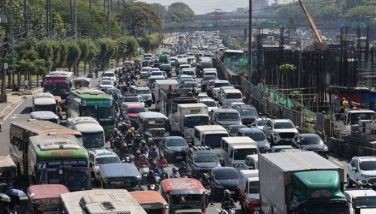DOE stripped of power over oil firms during crisis
MANILA, Philippines - The Court of Appeals (CA) has struck down the power of the Department of Energy (DOE) to temporarily take over operations of oil companies during a state of emergency.
In an 11-page decision, the 9th Division of the appellate court upheld an Aug. 23, 2010 ruling of the Makati Regional Trial Court (RTC) that declared the DOE’s power under section 14 (e) of Republic Act 8479 (Oil Deregulation Law) unconstitutional.
The provision states that “in times of national emergency, when the public interest so requires, the DOE may, during the emergency and under reasonable terms prescribed by it, temporarily take over or direct the operation of any person or entity engaged in the industry.â€
The CA dismissed the petition filed by the DOE questioning the RTC ruling.
The court held that section 14 (e) was a “misplaced provision†in the law since only Congress can allow government takeover of an industry through a national policy.
“To synthesize, what makes Section 14 (e) of RA 8479 particularly repulsive and thus unconstitutional is that it grants unbridled power to the DOE, not even the President, to perform essential acts, which only Congress is constitutionally mandated to perform,†read the ruling penned by Associate Justice Socorro Inting.
It stressed that the provision “failed to comply with the parameters prescribed by Section 23, Article VI of the Constitution, thus, rendering it unconstitutional.â€
“As required by Section 23, Article VI of the Constitution, the determination of the existence of war or other national emergency to warrant the President’s exercise of emergency powers is reposed upon Congress, thus, making it a legislative act,†explained the ruling promulgated last June 25 but released only yesterday.
The CA also cited the Supreme Court ruling in the case of David et. al. v. Arroyo, which pointed out that the exercise of emergency powers such as the taking over of privately owned public utility or business affected with public interest like the oil industry requires Congress’ nod first.
In this case however, the appeals court said section 14 (e) of the Oil Deregulation Law as well as the order issued by former President Gloria Macapagal-Arroyo showed that it was the president who determined the existence of emergency instead of Congress as required under the Constitution.
- Latest
- Trending




























